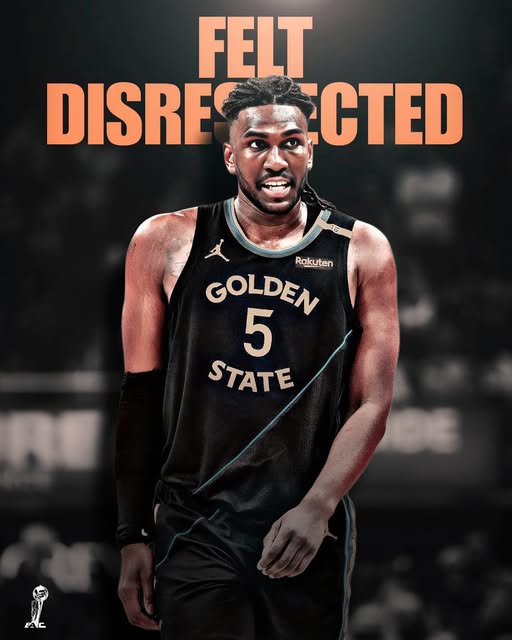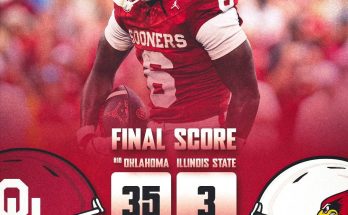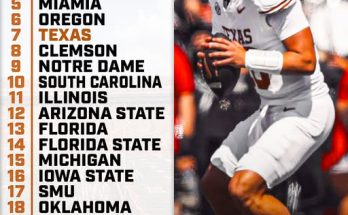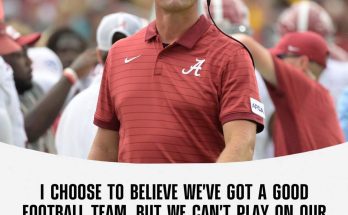Kevon Looney’s departure from the Golden State Warriors marks the end of a significant era not just for the team but also for one of the most dependable role players in the NBA over the past several years. A quiet, hardworking presence on a roster full of superstars, Looney became an embodiment of perseverance, professionalism, and selfless contribution. His recent candid comments about his exit from the team, however, reveal a more emotional and human side to the business of basketball. In a statement that stunned both fans and analysts, Looney remarked, “They didn’t trust me when it mattered most,” offering a rare glimpse into the internal decisions and feelings that shaped his departure.
Looney’s time with the Warriors has been anything but conventional. Drafted 30th overall in 2015, he entered the league with high expectations but was quickly humbled by injuries that threatened his career before it even began. Hip surgeries, back issues, and limited playing time early in his career made it seem as though he might quietly fade into NBA oblivion. Yet, through grueling rehab and sheer will, he clawed his way back into relevance. By the time the Warriors entered the latter stages of their dynasty run, Looney had become a reliable starter in the playoffs, frequently tasked with defending elite big men, crashing the boards, and setting tough screens for Steph Curry and Klay Thompson.
Perhaps what set Looney apart most was not his stats but his stability. He was never a 20-point scorer, nor did he dominate highlight reels. But he was the kind of player that winning teams need: dependable, disciplined, and willing to sacrifice personal glory for the sake of the collective good. Whether it was grabbing offensive rebounds in traffic, switching onto guards in pick-and-roll situations, or playing through pain without complaint, Looney was a coach’s dream and a teammate’s safety net.
That’s what made his comments so shocking. Throughout his time with the Warriors, Looney rarely spoke out of turn or publicly challenged the team’s decisions. But his latest remarks suggest a lingering feeling of betrayal, or at least deep disappointment, about how things ended. According to sources close to the organization, the tension began during the latter part of last season when Looney’s minutes began to fluctuate despite solid performances. While younger players were given more time on the court in critical situations, Looney often found himself benched or playing shortened stretches during fourth quarters.
“It was tough,” Looney admitted in a recent interview. “I’ve always been a team-first guy. I did what they asked. I played through injuries, showed up early, stayed late, kept my mouth shut. But at the end, when it really mattered, they stopped believing in what I brought to the floor.”
Those are powerful words, especially coming from someone known for his quiet demeanor. What Looney seems to be grappling with is something many role players experience in professional sports—a sense that loyalty isn’t always reciprocated. Despite being part of multiple championship teams and earning the trust of head coach Steve Kerr for much of his career, Looney saw that trust diminish when the team began looking toward the future. The Warriors were clearly in transition, with a core that’s aging and younger prospects needing development. In such times, even the most consistent veterans can find themselves on the outside looking in.
From a basketball perspective, some analysts argue that the decision to reduce Looney’s role made sense. His limited offensive game and lack of vertical explosiveness sometimes hindered the Warriors’ ability to stretch the floor or match up against smaller, faster lineups. But even those analysts are quick to point out that Looney’s intangibles—his rebounding, defensive communication, and ability to stay poised in pressure situations—are rare qualities. The playoffs in particular have often shown that advanced stats don’t always tell the full story. Players like Looney become invaluable when the game slows down and execution matters most.
Which makes his removal from the Warriors’ rotation in crunch-time scenarios all the more puzzling. Even more confounding was the front office’s decision not to include Looney in their long-term plans despite his willingness to take team-friendly deals throughout his career. “It’s not even about the money,” Looney said. “It’s about respect. I never asked to be the face of the team. I just wanted to feel like what I did mattered.”
Respect. Trust. Recognition. These are themes that recur not just in Looney’s story, but in the broader conversation about how organizations treat players who give everything but don’t necessarily fit the mold of a franchise star. The Warriors, to their credit, have been loyal to many of their veterans over the years, including Andre Iguodala and Shaun Livingston. But Looney’s exit might be a reminder that even the best cultures can have blind spots.
In the locker room, Looney was seen as a mentor to younger players and a calming influence amid chaos. He rarely spoke loudly, but when he did, teammates listened. His presence anchored the team through various ups and downs, including the difficult 2019–2020 season when the Warriors missed the playoffs and battled injuries across the board. In that campaign and beyond, Looney was a symbol of consistency, someone who understood the Warriors’ system inside and out and executed it with intelligence and heart.
Even in this most recent season, Looney had his moments. There were games where his rebounding single-handedly kept the Warriors in contention. In matchups against physically dominant opponents, his strength and positional awareness were critical. And yet, he found himself sidelined or passed over in key moments, something that clearly weighed heavily on him. The emotional toll of being overlooked after years of sacrifice is evident in his tone and choice of words.
Still, Looney remains grateful for his time in Golden State. “I have nothing but love for my teammates and the fans,” he said. “This is where I grew up—not just as a player but as a man. I’ll always appreciate what we accomplished together. But at some point, you have to recognize when it’s time to move on.”
Indeed, Looney’s move may prove to be a blessing in disguise. Several teams have already expressed interest in the veteran big man, seeing his championship experience and selfless playing style as assets that could elevate a locker room and provide valuable playoff poise. Wherever he lands next, Looney’s leadership and professionalism will be welcomed. And perhaps, in a new environment, he’ll find the trust and respect he felt was lacking during his final chapter in the Bay.
His story also serves as a poignant reminder of the human side of sports. Behind every trade or release is a person with emotions, history, and pride. Looney’s honesty about feeling let down by a team he gave so much to may resonate with many athletes across leagues who find themselves in similar positions. His situation encapsulates the quiet heartbreak that sometimes comes with being a role player in a superstar-driven league.
Basketball is, at its core, a business. Front offices have to make tough decisions. Coaches are under pressure to win and to develop new talent simultaneously. And fans often only see the final product without understanding the personal sacrifices behind it. But Looney’s words cut through that noise with clarity. They echo the frustration of being dependable, humble, and loyal—and still being deemed expendable.
In the end, Kevon Looney’s legacy with the Warriors should not be defined by the way it ended but by the years of gritty, selfless basketball he delivered. He may never be a Hall of Famer or a household name, but in Golden State lore, his value is undeniable. He was the glue guy, the dirty-work expert, the embodiment of what it means to play for the team and not just for oneself.
Still, it’s hard not to feel that the Warriors missed an opportunity—not just to reward loyalty, but to reinforce the culture that made them great. And if Looney’s next team can tap into the chip he now carries on his shoulder, they just might find that the man Golden State no longer trusted is still capable of delivering when it matters most.



